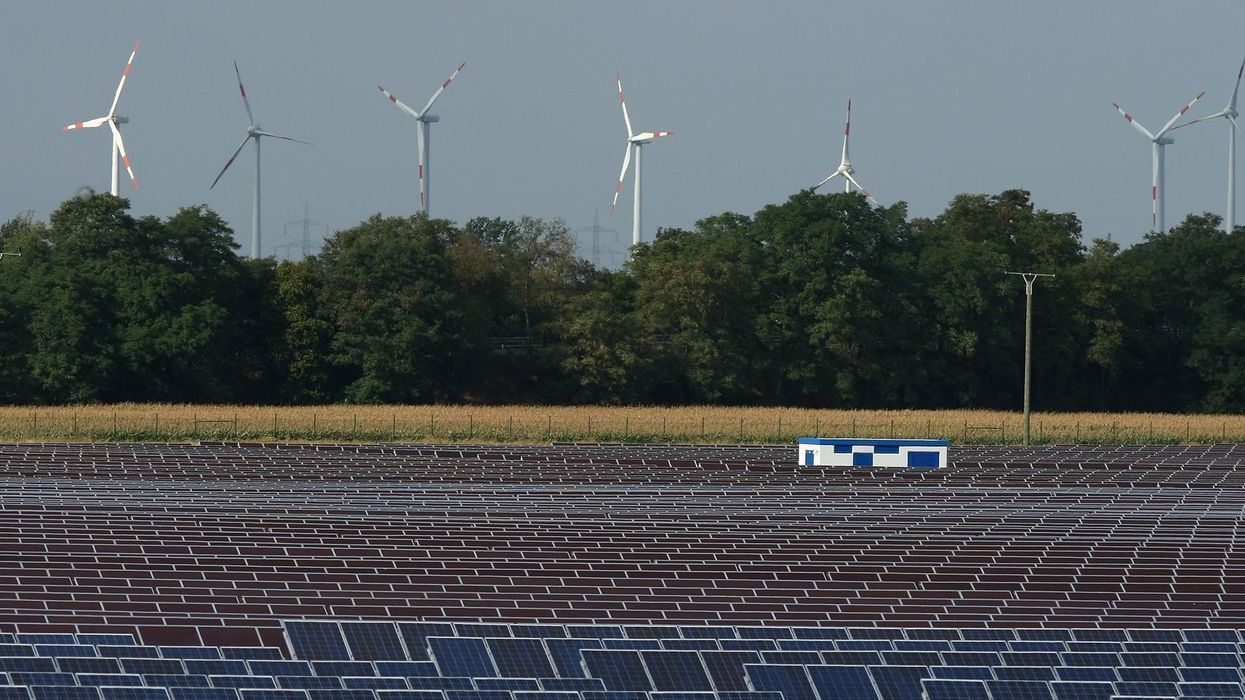Science & Tech
Indy100 Staff
May 15, 2017

Picture:
Getty Images
The future came early on Easter Day in Germany, as green energy ran almost the entire country.
On April 30, 64 per cent of electricity consumed in Germany came from renewable sources, such as wind power and solar. At 2pm, the share of renewables was 85 per cent and between 10am and 6pm over three quarters of demand was covered by clean energy - an impressive feat in a world still dominated by coal and oil.
German think-tank Agora Energiewende shared the data of this momentous achievement, remarking that this sort of situation will be "completely normal" by 2030.
Easter weekend in Germany also saw the the least amount of coal the country has used “in recent history” and nuclear power plants reduce their output by up to 40 per cent.
Germany's recent clean energy initiative has seen €1.5 billion (£1.27 billion) being spent on researching renewable energy sources. It's thanks to this investment that Germany hope to cut out nuclear power altogether by 2022. The country's leaders also have their sights set on reducing greenhouse gas emissions, such as carbon dioxide, methane and Nitrous Oxide, by 80 per cent.
Dr Patrick Graichen, the director of Agora Energiewende, said
By 2022, the nuclear energy exit will be completed, so that in 2030 there is no longer a problem.
In addition, inflexible, old coal power plants have to be looked into. Along with the climate protection and the future EU limit values for nitrogen oxide emissions, this is another reason to take them off the grid in the foreseeable future.
In fact, the sheer amount of energy that was produced resulted in the creation of “negative prices” for several hours for consumers. Simply put, people were effectively being paid to use up the electrical surplus.
Despite this fantastic news from Easter, Germany is struggling elsewhere in its attempts to protect the environment.
Chancellor Angela Merkel told the press on Monday that Germany will most likely miss its governmental target of building 1 million electric cars by the end of the decade.
“As it looks at the moment, we will not achieve this goal,” Mrs Merkel said.
Last month, the UK celebrated its first day since the Industrial Revolution when it didn’t burn coal.
HT IFLScience
Top 100
The Conversation (0)













